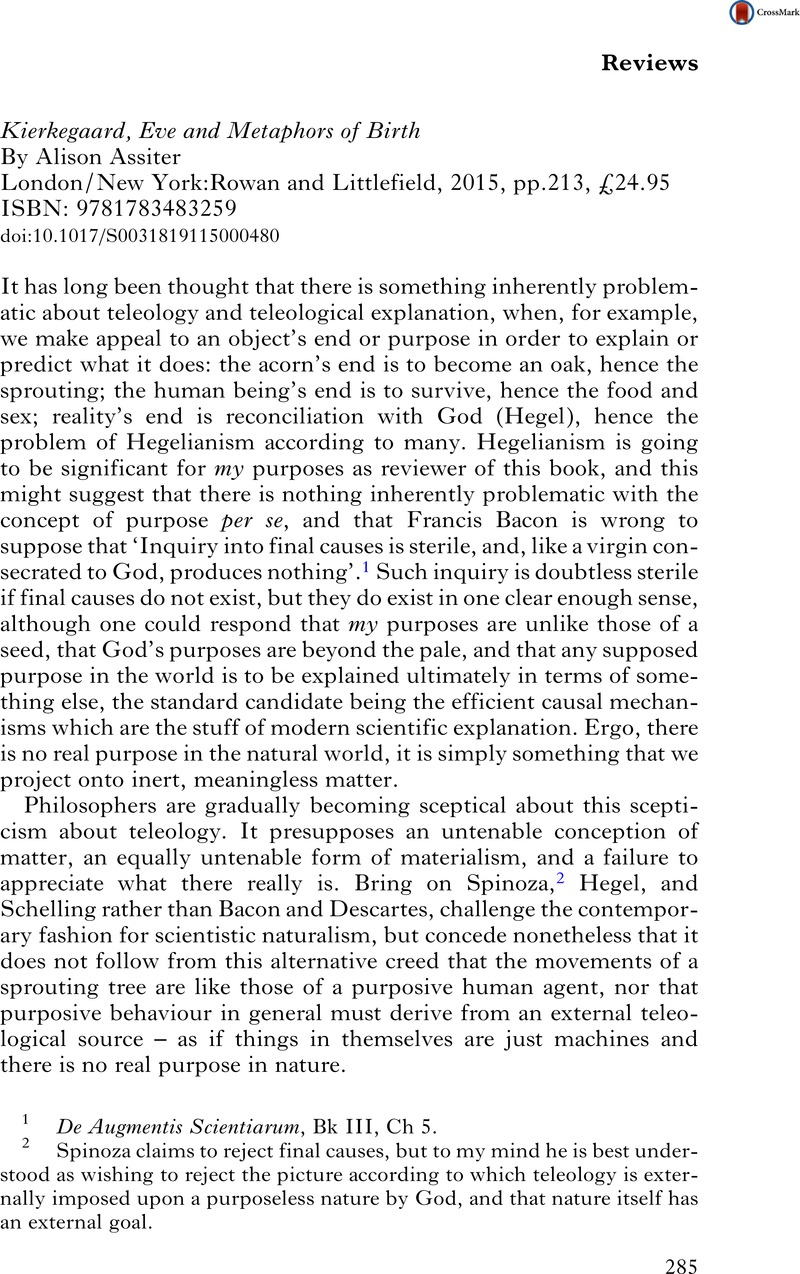No CrossRef data available.
Article contents
Kierkegaard, Eve and Metaphors of Birth By Alison Assiter London/New York: Rowan and Littlefield, 2015, pp.213, £24.95 ISBN: 9781783483259
Published online by Cambridge University Press: 22 September 2015
Abstract

- Type
- Reviews
- Information
- Copyright
- Copyright © The Royal Institute of Philosophy 2015
References
1 De Augmentis Scientiarum, Bk III, Ch 5.
2 Spinoza claims to reject final causes, but to my mind he is best understood as wishing to reject the picture according to which teleology is externally imposed upon a purposeless nature by God, and that nature itself has an external goal.
3 ‘Kenōsis and Subversion’, 35.
4 Ibid ., 315. The extract is from Divine Names, IV.13–15. The emphasis is Coakley's.
5 These matters and more are discussed in John Hawthorne's and Daniel Nolan's fascinating ‘What Would Teleological Causation Be?’, in John Hawthorne's Metaphysical Essays (Oxford: Oxford University Press, 2006), 265–284.



